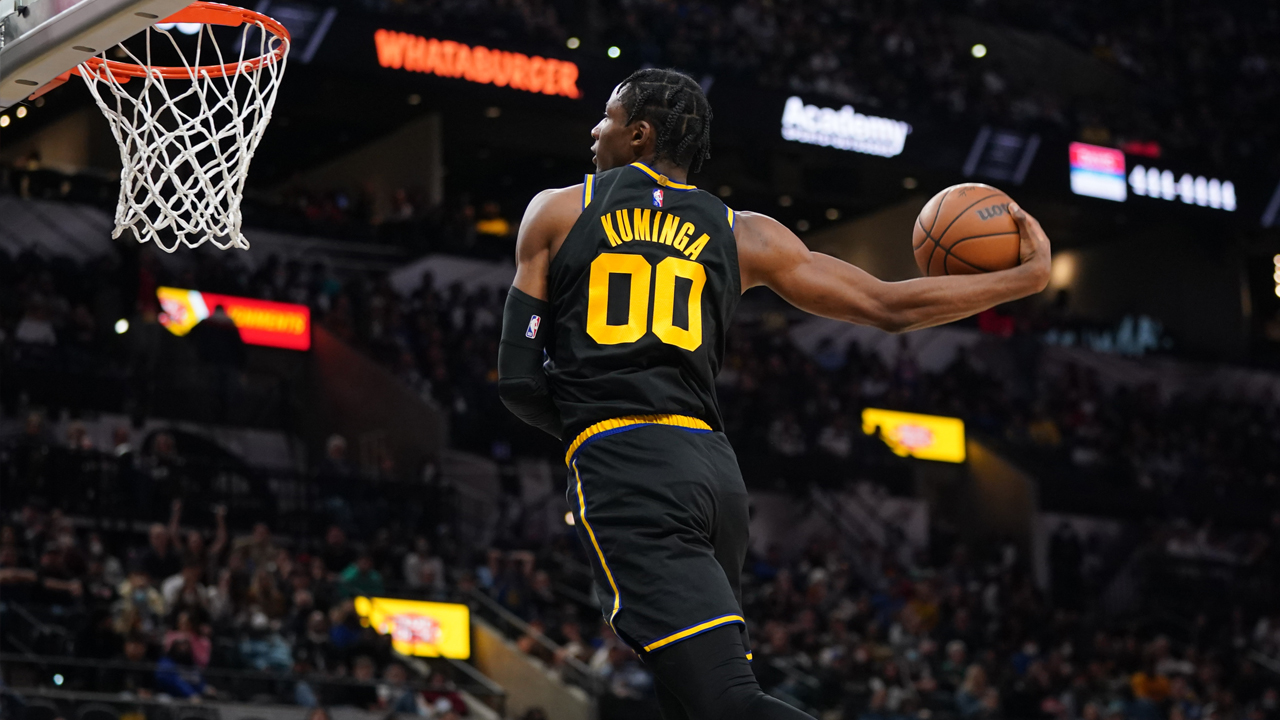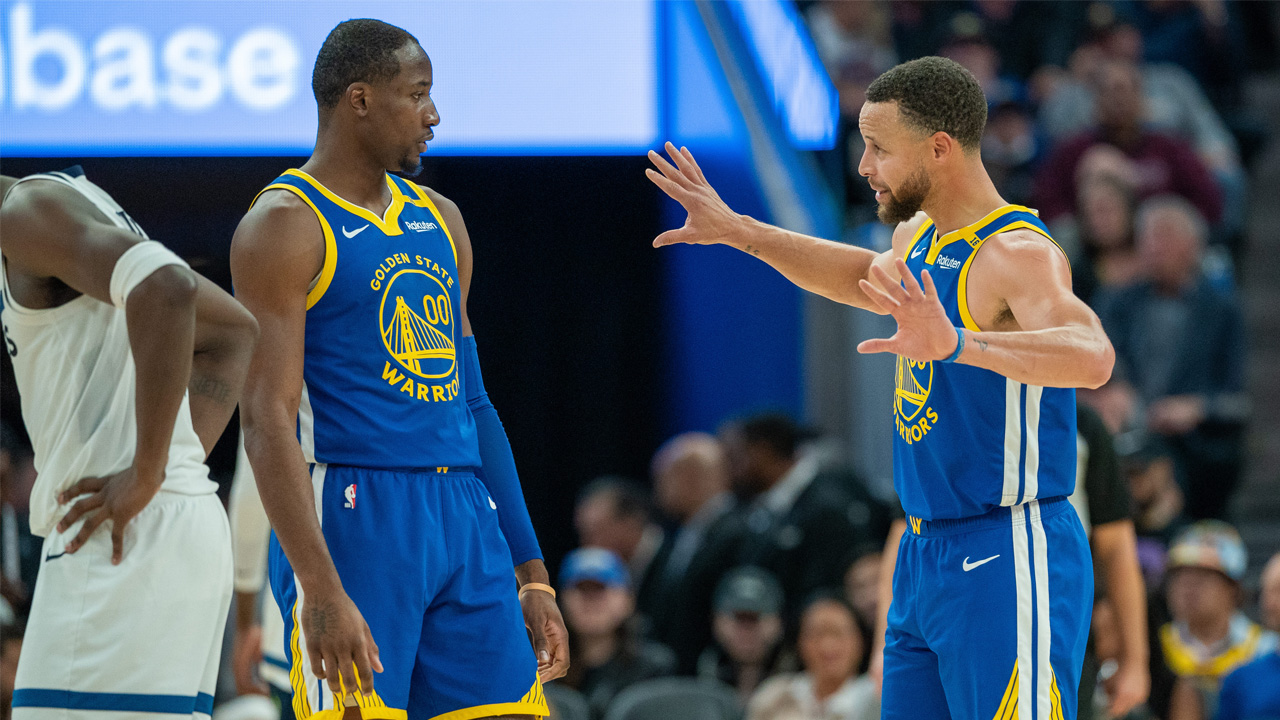- Programming note: "Race In America: A Candid Conversation" featuring Monte Poole's interview with Mahmoud Abdul-Rauf airs at 5:30 p.m. PT Wednesday and again after "Warriors Postgame Live" on NBC Sports Bay Area
The post-slavery journey of Black Americans has been as much sideways as forward, the route to equality with as many barricades as passageways, and woe to those daring to turn a bright light upon this naked truth.
The line of such courageous individuals is 160 years long, populated with activists famous or infamous, including athletes and entertainers, and among them former NBA star Mahmoud Abdul-Rauf.
After Muhammad Ali and before Colin Kaepernick, Abdul-Rauf stood on principle, and it cost him his career. He discussed this recently on “Race in America: A Candid Conversation,” premiering at 5:30 p.m. PT Wednesday on NBC Sports Bay Area.
“Well, 1996 is when it became public that I wasn’t standing for the national anthem,” Abdul-Rauf explains. “What brought that about was when I became a Muslim, and I began to read.”
The words from the likes of Randall Robinson, Arundhati Roy and Noam Chomsky flooded Abdul-Rauf’s brain like a tidal wave. While digesting American history and the many warts to which he had not been exposed, he was too enlightened and inspired to remain unmoved -- or uninvolved.
Before long, the 6-foot-1, 170-pound point guard was taking his place in America’s colony of those ostracized, joining, among others, Tommie Smith, John Carlos, Ali and Kaepernick. Mahmoud had neither Ali’s celebrity nor Kaepernick’s social-media impact. His story is their story minus the boldface type.
Golden State Warriors
Find the latest Golden State Warriors news, highlights, analysis and more with NBC Sports Bay Area and California.
Showtime Network is attempting to rectify that with “Stand,” a documentary that traces his evolution from a dirt-poor kid in Mississippi squalor named Chris Jackson to athlete/celebrity at LSU to third overall pick by the Denver Nuggets in the 1990 NBA Draft. It details one man’s conversion of faith, which compelled him to peacefully protest systemic racism in 1996.
Credit -- or blame -- goes to education. To discovering uncomfortable truths that some, then and now, would rather remain unknown and unexplored. Abdul-Rauf, 53, was “woke” 25 years before it was coopted into a pejorative.
“I became aware of some things in relation to this country, globally as well as domestically, that throughout by whole education wasn’t being exposed to,” he says. “And it pissed me off, to say the least.
“In light of that, and in what I was reading in my religion about standing up for justice -- even if it’s against yourself -- I said, ‘I have to do something. I have to break these chains.' "
Abdul-Rauf’s initial method of protest was not standing for the national anthem. When this was recognized by media -- one month after torching Michael Jordan, Steve Kerr, and the rest of the 72-win Bulls for 32 points, 23 in a scalding first half, as Denver snapped Chicago’s 18-game win streak -- it became a national story, much like Kaepernick in August 2016.
Mahmoud was booed at home games, booed harder on the road, received the obligatory death threats, and was suspended indefinitely by the NBA. After meeting with several spiritual advisers, he adjusted his protest. Rather than sit during the anthem, he would stand, face in his palms, praying for the oppressed.
That wasn’t good enough for Nuggets management. Despite being the team’s leading scorer, averaging 19.4 points per game, shooting 39.2 percent from deep and 93.0 percent from the line, Abdul-Rauf was traded to Sacramento.
Two years later, Abdul-Rauf was out of the league. A brief comeback with the then-Vancouver Grizzlies in 2000-01 lasted 41 games. The post-9/11 NBA closed its door on him.
“We should have covered him. We should have had his back,” former teammate Jalen Rose says in the documentary. “And we didn’t.”
In addition to Rose, “Stand” features interviews with Stephen Curry, Shaquille O’Neal, Ice Cube, Mahershala Ali, and Kerr. Why Curry? Largely because Abdul-Rauf’s skills -- five-level scoring, quick release, crisp handle, impeccable footwork -- were very similar to those of the Warriors star.
Abdul-Rauf over the last 20 years has endured numerous threats and indignities, including having his newly built home in Mississippi vandalized and torched -- with the Ku Klux Klan suspected -- before he and his family could move in.
And, still, he rises. He has been a star in the Big3 League, had his jersey retired by LSU and been an active trainer for individual players and at camps, including one last summer at the Warriors facility in Oakland.
RELATED: Tiger Woods' father-son golf show stirs Steph's imagination
Countless links have been added to the chain that in many ways began with the likes of John Brown and Frederick Douglass in the mid-19th century. There’s a Paul Robeson link. A Jackie Robinson link. A shared link for Tommie Smith and John Carlos, one for Ali and one for Kaepernick. And one for Abdul-Rauf.
Eight score and one year since the signing of the Emancipation Proclamation, the fight for the equality promised rages no less. What, really, has changed?
“As far as I’m concerned, not much at all,” Abdul-Rauf said.
“The same conversations they were having back then, are pretty much the same conversations we’re having now. If you were to take the black-and-white images of the ‘40s and ‘50s and ‘60s -- all the way to the 2000s -- and you take the 2000s images and turn them into black-and-white, if no one had a sense of history, they would think this is the same time span.”
Yes, they would, regardless of the many symbolic celebrations and other pacifying measures.


